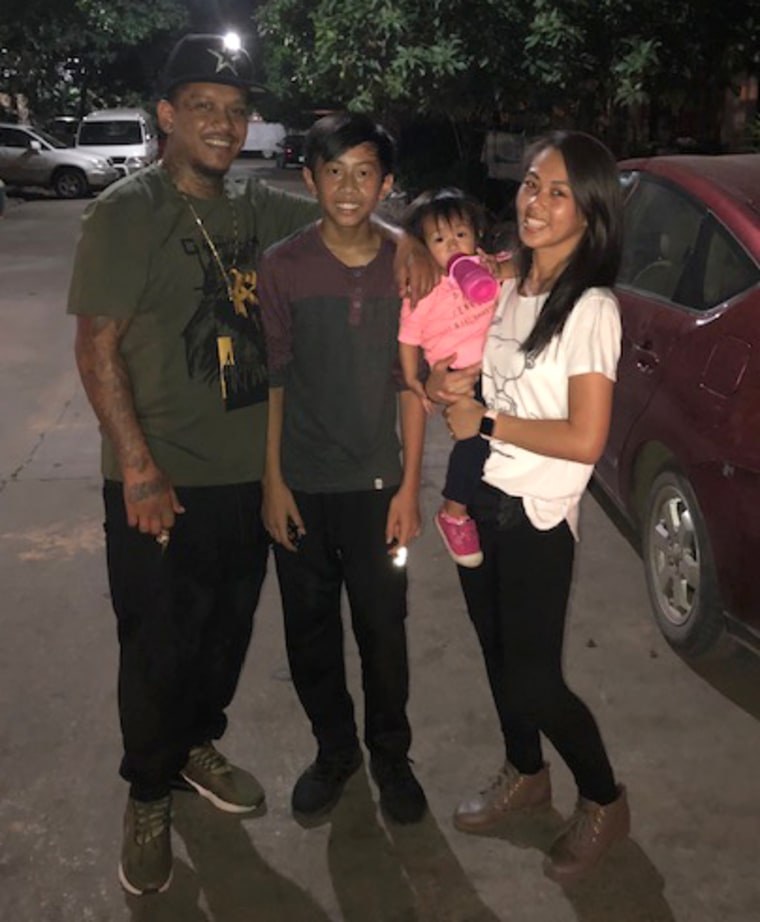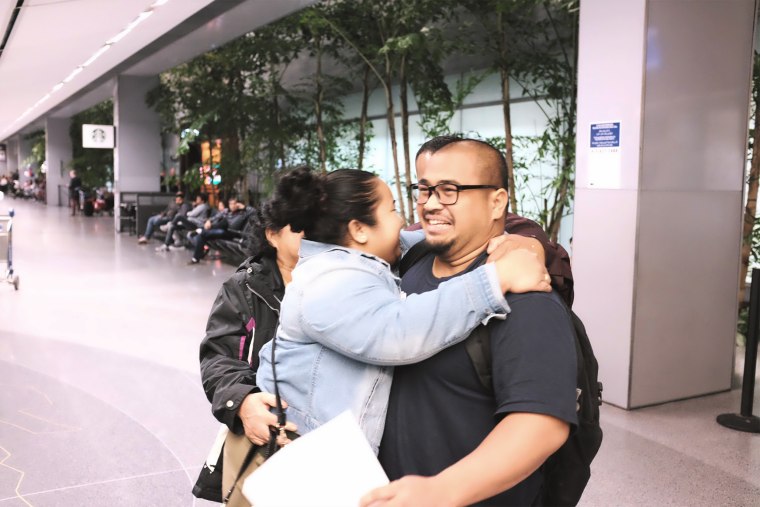Five years after he was deported to Cambodia, Veasna Meth is expected to return home to California on Wednesday, becoming what advocates say will be the second Cambodian deportee to return to the United States.

Deportees returning to the United States is a rare occurrence, according to Melanie Kim, staff attorney at Asian Americans Advancing Justice – Asian Law Caucus, who is co-representing Meth. But constantly changing immigration laws — including what convictions make an individual removable from the U.S. — have made Meth's return possible, as well as that of Phorn Tem, who reunited with his family in California in November. Tem is believed to be the first Cambodian deportee to return to the U.S.
Meth, 29, received a removal order in 2013 due to a 2008 burglary conviction. A change in law last year — U.S. Supreme Court case Sessions v. Dimaya, which concluded that California burglary is no longer a removable offense — opened up the opportunity to challenge the validity of his old removal order, Kim said.
Tem, 33, who received a removal order due to a 2009 conviction of possession for sale of marijuana, was able to vacate his order in criminal court because of a new California law implemented in 2017. The law allows individuals no longer in criminal custody to file a motion to vacate a conviction or sentence based on two reasons. One is if a conviction or sentence is legally invalid due to prejudicial error (which could include a court-related error), preventing the individual from understanding the immigration consequences of pleading guilty or no contest.
Kim said that before this law, it would have been impossible for Tem to reverse the immigration consequences of his drug conviction.

Upon returning to the United States, individuals who were legal permanent residents before they were deported get that status reinstated, Kim said, making them subject to the same immigration laws as all such residents: They should be able to apply for naturalization and could still be deported for certain convictions or for being out of the country for too long.
Efforts to bring deported Cambodians back to the United States began in 2016 when Southeast Asian American community advocates raised the possibility at a convention in Cambodia, Kim said. Two attorneys from the Asian Law Caucus conducted intakes with deportees, she noted, and the group is now reviewing those records to see if there are legal arguments to terminate removal orders.
Advocates are hopeful that returning from deportation won't be uncommon for long.
“Veasna's return sends a message of hope to other Cambodian refugees who were deported years ago based on convictions that, at the time, made them 'removable.' Years later, due to changes in the law created by higher court decisions, their underlying offenses might not be 'removable' offenses anymore,” Kim said.
Quyen Dinh, executive director of Southeast Asia Resource Action Center, a civil rights advocacy group, applauded legal advocates for being instrumental in the fight against the country's “inhumane immigration practices.”
But there is still much work to be done, she added, and called on Congress to fix America's immigration system and terminate unjust family separations. She said in an email that Southeast Asian communities “continue to live in fear and worry over the constant threat of detention and deportation, and we are bracing for another anticipated ICE sweep of Cambodian Americans in these next couple weeks."
In Cambodia, the Khmer Vulnerability Aid Organization – a group that has helped 701 Cambodian deportees transition to life in Cambodia – is supporting efforts to reverse the removals, but has urged deportees to exercise caution. Bill Herod, spokesperson for the group, said in a statement that while many of the organization's clients may have suffered the consequences of poor and sometimes costly legal advice, it does not necessarily mean their cases can be reopened and reversed.
“Those considering legal action permitting their return to the U.S. will have our cooperation, but as the process may be lengthy and uncertain, we hope this will not interfere with the hard work they are now doing in building new lives of freedom and responsibility in Cambodia,“ he said. “That work will be useful, whatever the future holds.”
Follow NBC Asian America on Facebook, Twitter, Instagram and Tumblr.
CORRECTION (Feb. 27, 2019, 4:25 p.m. ET): An earlier version of this article misstated in a photo caption the year Phorn Tem was deported from the U.S. It was 2018, not 2013.

